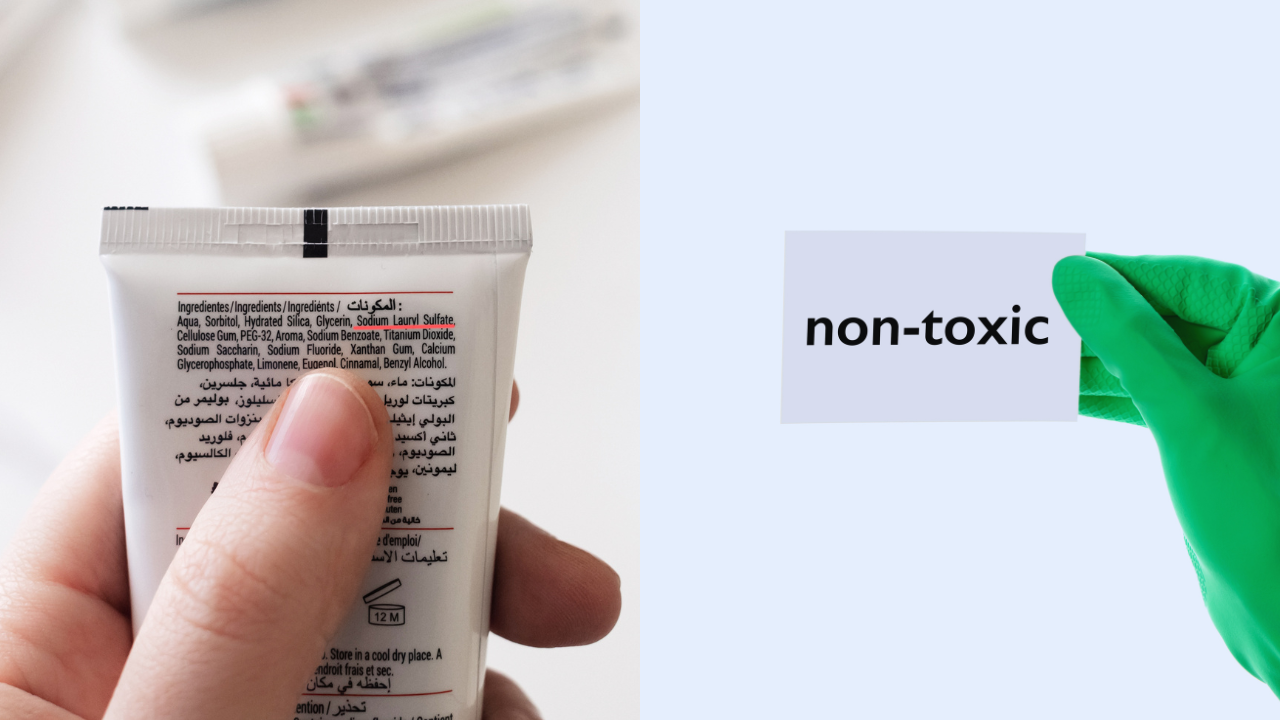-
news
-
Health
Ignoring the ‘non-toxic’ labels? Time to rethink the products on your shelves
From toys to cosmetics, many everyday products contain harmful chemicals like parabens, sulfates, and phthalates. Adopting non-toxic, plant-based alternatives reduces risks and environmental damage.

Image – Canva
Stop and think how many times you’ve checked the “non-toxic” label on your products before putting them in the cart. Whether it’s a toy for your child, makeup or skin care products, kitchenware, or simply your laundry detergent, we are filling ourselves with chemicals. Consciously or unknowingly, we have for too long ignored what is in the products we love and use every day. Apart from environmental factors, of course, there are a lot of items that you could call essential but that need to be thrown out the window right now.
While you may have heard of SLS or parabens, there are many other chemicals that we probably can’t even pronounce but that are carcinogenic. Thankfully, many people are adopting a plant-based lifestyle, which automatically reduces the toxic load as well. Many brands are now changing the narrative by actively adopting natural methods to formulate their products.
From your toothpaste, which is probably high in fluoride, to traditional deodorant, which emits toxins as you spray, anything that doesn’t indicate non-toxic or mention the ingredients is a no-go. Is harming your health in ways you can’t imagine. Now is the time to switch to plant-based alternatives and here’s your guide to spotting these chemicals in products before purchasing them.
chemical to watch
toys
- phthalates: Found in plastics; Linked to hormone disruption.
- lead: used in paint; Harmful for brain development.
Eat
- BPA: Found in food cans and plastic containers; Hormones may be affected.
- artificial colors: Linked to hyperactivity and allergies.
skin care
- Parabens: Preservatives that can disrupt hormones.
- Fragrance: May contain allergens or unknown chemicals.
hair care
- Sulfates (SLS/SLES): Found in shampoos; Strips away natural oils and can cause irritation.
- Parabens: Used as preservatives; Linked to hormone disruption.
- silicone: Found in conditioner; Hair accumulation and weight may decrease.
- Formaldehyde-releasing agents: Found in some treatments; May cause scalp irritation and be a possible carcinogen.
deodorants
Aluminum compounds: Found in antiperspirants; Linked to breast cancer and Alzheimer’s concerns (although studies are inconclusive).
Parabens: Preservatives with potential hormonal effects.
Fragrances: Often unknown chemical mixtures, which may include allergens and endocrine disruptors.
triclosan: antibacterial agent; May contribute to antibiotic resistance and disrupt hormones.
laundry
- Optical brighteners: Cause skin irritation and water pollution.
- phosphate: Damaging the aquatic ecosystem.
pan
- PFOA/PFAS:Non-stick coatings are associated with health risks.
- PVC: Plasticizers can leach harmful chemicals.
Get the latest news live on Times Now with breaking news and top headlines from around the world.
phthalates
lead
BPA
artificial colors
silicone
triclosan
phosphate


